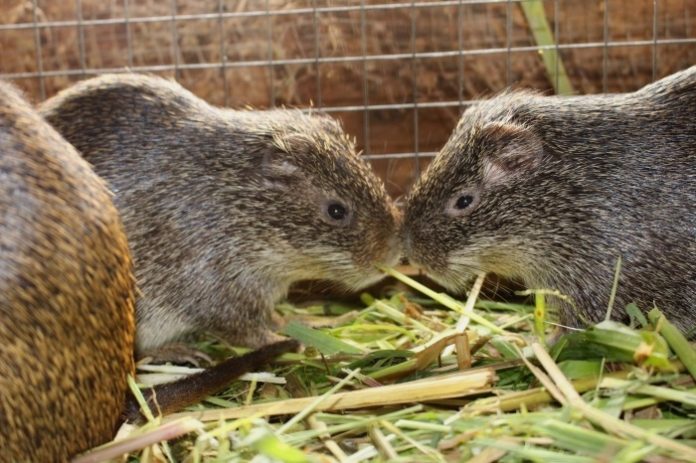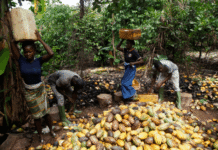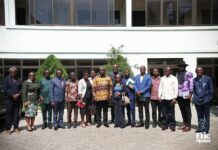Professor Boniface B. Kayang, the Project Coordinator of the Ghana Grasscutter Project, has stated that the future of grasscutter farming in the country looks very bright based on the high interest and demand for grasscutter.
Prof. Kayang who is also the Head of Department of the Animal Science, School of Agriculture, University of Ghana, said grasscutter meat is a delicacy for everyone in the country, hence the availability of already market for the meat.
Prof. Kayang who stated this during a follow-up training workshop for key beneficiary farmers and stakeholders in the Upper West Region noted that due to the high demand for the grasscutter, they are trying to increase as well as add value in the form of processing the products to meet both domestic and the international market standards.
“We want to see grasscutter meat on shelves in shops like Shoprites and other supermarkets that export it to the international market,” he said.
The Grasscutter Project Coordinator noted that before the introduction of the project in the Upper West Region, there was no grasscutter in the region, however, starting with a few farmers on a pilot basis, they now breed over 700 animals.
He said the region currently has 42 grasscutter farmers with over 200 live grasscutters. He added that they had so far sold over 170 grasscutters at prices ranging from GHȻ150.00 to GHȻ200.00 per one.
Prof. Kayang noted that they had made a lot of progress in grasscutter farming in the region judging from where they started and expressed optimism that the enthusiasm was growing and more people would join after the workshop.
He said through the Grasscutter Initiative for Rural Transformation (GIFT), they would continue to supply interested farmers with grasscutters as well as the cages to enable them to start and also become grasscutter farmers.
The Grasscutter Project Coordinator, however, noted that the issue of domestication of the grasscutters is still a challenge, which together with the National Institute of Genetics in Japan they are trying to address through selective breeding.
Mr. Mahama Adams, a 66-year-old Grasscutter Farmer, said grasscutter farming for him is a big business, noting that it is out of the business that he is able to take care of his family.
He said the availability of a market for the animal is a major motivating factor to engage in the business. He stressed that anytime his grasscutter is ready for the market, all he has to do is to make a call to the project team and it would be sold.
The Ghana Grasscutter Project has been in operation for the past six years since it was launched in 2014.
The initiative is a collaborative effort between the University of Ghana, Ajinomoto Foundation, Kyoto University, Gifu University, and the National Institute of Genetics all in Japan as well as the University of Edinburgh, the UK to support farmers in the region to rear grasscutters to augment the family income, improve protein intake and promote environmental and wildlife conservation.
Source: GNA








